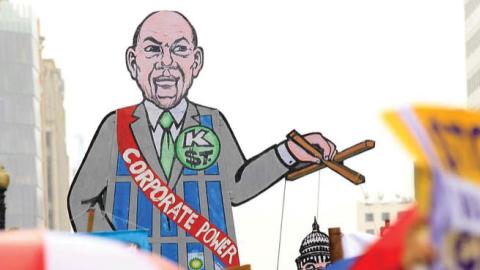‘The idea that US markets are the most competitive in the world has been widely accepted in economics for several decades,” economist Thomas Philippon writes in “The Great Reversal.” The thrust of his argument is that this idea is largely a myth. Even before the financial crash of 2007-08, he says, many Americans felt that there was something not right about the economy—that it wasn’t performing as advertised. Still, it is routinely assumed that America is a dynamic, wealth-creating powerhouse compared with its sluggish European rivals, burdened as they are by statist oversight and intervention. What few realize, Mr. Philippon says, is that Europe is fast becoming a haven for free-market competition; it’s the U.S. that has become mired in an anti-competitive, quasi-monopolistic environment where companies that are “too big to fail” wield influence to crowd out newcomers and drive prices up while pushing investment and productivity down.
Mr. Philippon, a professor of finance at New York University’s Stern School of Business, begins “The Great Reversal” with a simple observation: “Why on earth are US cell phone plans so expensive? . . . Why do consumers in Europe or in Asia pay less for cellular service and, on average, get much more?” He points to a 2017 study showing that American consumers could save as much as $65 billion a year if mobile rates were comparable with German ones. Another study from 2015 makes the same point about the cost of internet service, which in the U.S. is as much as 3½ times higher than it is in France.
Read full article in Wall Street Journal



















